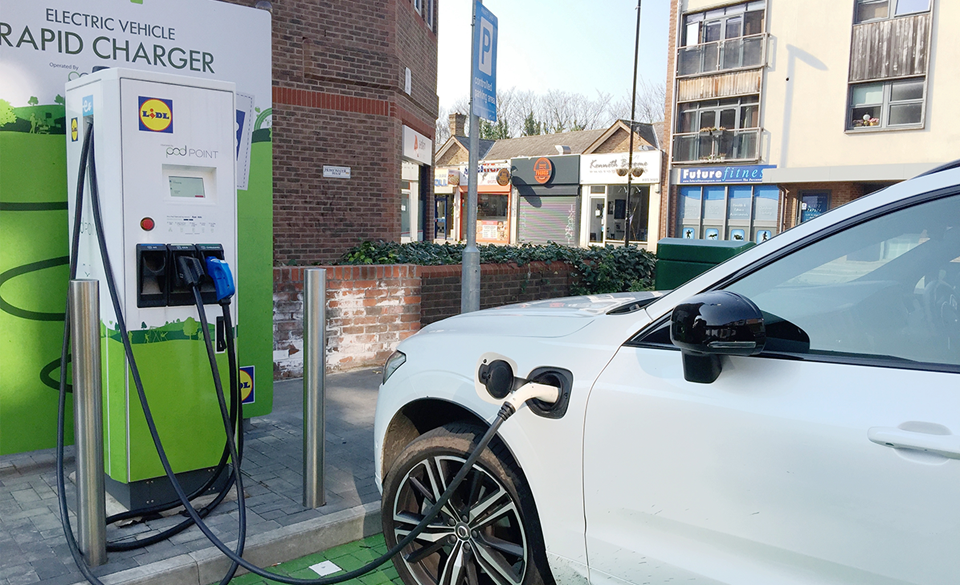Government plans to ban the sale of new diesel and petrol cars by 2030 are over-ambitious, according to research. Only 16% of the British public believe the UK will be ready to make the switch to electric vehicles, according to a survey by Riverdale Leasing.
The study of 2,000 people across the country revealed 43% of respondents felt the UK would NEVER be ready for electric motoring. The results of the poll are at odds with government plans to ban the sale of all new petrol and diesel cars and vans in just seven years' time.

© LSP EM / Shutterstock.com
The aim is to make the transition from fossil-fuel vehicles to protect the environment. New hybrid vehicles are being given a stay of execution until 2035.
In 2020, the government announced its £1.3 billion investment in EV charge points for motorways, streets and homes to help facilitate the move.
However, as the deadline approaches, the majority of Brits think it's too soon, with 18% suggesting it should be postponed until 2040 and 22% saying delay it until 2050.
Why are people reluctant to use electric cars?
The wave of negative public opinion on all new cars being electric or hybrids is based on a number of reasons. One of the main issues people foresee is the higher cost of electric vehicles compared with traditional petrol and diesel options.
The rising cost of energy means motorists don't want the added expense of an EV charging point at their home.
In addition, electric vehicles on average cost more to purchase than their petrol counterpart. For example, the Vauxhall Mokka GS Line petrol model costs £24,640, while its electric equivalent is £31,945.
However, the government says the running costs of an electric car will be up to 70% less than a petrol or diesel vehicle, claiming motorists will make their money back over time.
Another complaint from critics is a lack of EV charging points nationwide. Setting the deadline for 2030 has piled pressure on the government to drastically improve the UK's charging infrastructure.
The comparison website Go Compare initially predicted the UK would have 197 electric vehicles per public charger by 2031. However, it has revised its estimate - and the new prediction is worse than before.
Now analysts at Go Compare suggest the nation will have only one public rapid charger for every 527 electric vehicles by 2031. They say the decline in charger availability has started already, due to the number of EVs being purchased.
In 2021, there were 266 electric vehicles for every one public charger. The installation of new chargers simply isn't happening quickly enough to keep up with the growing demand, according to estimates.
What about people who don't want an electric vehicle?
Some motorists simply prefer petrol and diesel vehicles to electric - and no amount of government promotion will change their mind. For many drivers, it will be a case of using older petrol and diesel vehicles after the 2030 deadline.
They intend buying used cars to avoid having to make the switch to EVs. According to research carried out in 2022 by the AA, almost one-quarter say their next vehicle will run on petrol. The survey of 15,500 motorists revealed 22% had no intention of going electric.
Only 10% of respondents said their next purchase would be a fully electric car, as they felt there was currently no incentive for them to make the switch. Only 1% of the motorists surveyed said they already owned an electric car.
Motorists who decide to continue driving older cars to avoid the switch to electric vehicles may take steps to keep up to date with the latest technology to enhance their driving experience.
Using a retrofit specialist will enable drivers of older cars to have accessories fitted retrospectively.
These include next gen anti-theft devices, parking sensors, reversing cameras, trackers, heated seats, DAB radio and folding mirrors.
The government has deemed the 2030 EV deadline as "feasible" following a consultation exercise, although plug-in hybrids with a "significant" electric range have been given a little leeway.

